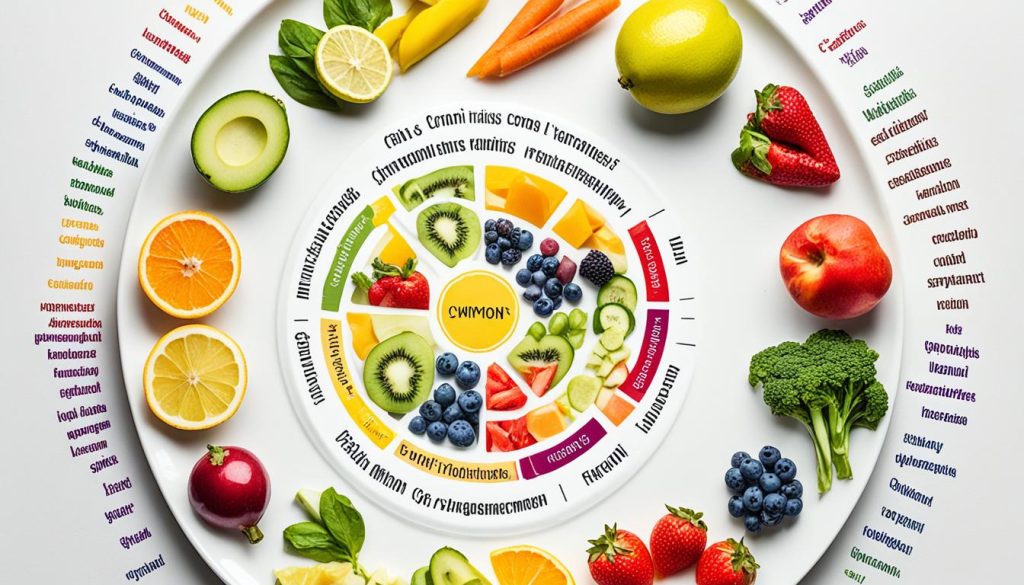For the past decade, I have been loving and supporting a woman who battles with the daily challenges of endometriosis and fibromyalgia. Witnessing her journey with these chronic illnesses has profoundly shaped my perspective on life and ignited a passion within me to make a difference. As her partner and caregiver, I have learned firsthand the impact that diet can have on managing chronic illness symptoms.
Through extensive research and consultations with medical professionals, I have discovered the powerful role that nutrition plays in alleviating the symptoms of chronic illnesses. It became evident that a healthy diet could provide much-needed relief and improve my partner’s overall well-being. This newfound knowledge inspired me to delve into the world of blogging, where I could share our experiences, advocate for my ill partner, and help others facing similar challenges.
Writing about our journey has become a therapeutic escape for me, allowing me to process the emotions that come with the “new normal” of living with chronic illness. It has also given me a platform to raise awareness about the impact of diet on symptom management and connect with a community of caregivers and individuals navigating similar paths.
Moreover, blogging has provided us with a sense of financial security. By creating informative and engaging content, we have been able to monetize our blog and secure our future while pursuing a passion that truly makes a difference. It has given us the freedom to focus on my partner’s health without the added stress of financial instability.
Through our journey, I have come to understand the importance of lifestyle adaptations and the constant need for support and resources. With each passing day, I grow more grateful for the power of love, empathy, and education in navigating the challenges of loving a woman with a chronic illness. Join me as we explore the impact of diet on chronic illness symptoms, learn about nutritional strategies for symptom management, and discover the lifestyle adaptations necessary to thrive in the face of adversity.
The Importance of Nutrition Education for Caregivers
Caregivers play a crucial role in ensuring that the care recipient receives the right kind of nutrition. As a caregiver, your knowledge and understanding of nutrition are vital in providing nutritionally adequate and appropriate diets for your loved ones with chronic illnesses.
Proper nutrition education can greatly enhance your ability to meet the dietary needs of your care recipient. By equipping yourself with the necessary knowledge and skills, you can make informed decisions about food choices, meal planning, and preparation.
Nutrition education offers numerous benefits to caregivers:
- Improved health outcomes for your care recipient by meeting their dietary requirements
- Gained knowledge on nutrition and its impact on chronic illnesses
- Enhanced ability to manage specific medical diagnoses, such as malnutrition, chronic disease management, obesity, dementia/Alzheimer’s, oral health, food and drug interactions, and nutrition support therapy
- Increased confidence in providing nutritionally adequate and appropriate diets
- Cost-effective food choices that optimize nutrition without straining your budget
Access to trustworthy resources for nutrition education is essential. Reliable sources include federal, state, and local government websites, healthcare systems or hospitals, universities or USDA Cooperative Extension Services, and national organizations specializing in chronic disease conditions and nutrition.
Here’s an example of a table that highlights some useful resources for nutrition education:
| Resource | Description | Website |
|---|---|---|
| Federal Government Nutrition Education Resources | Comprehensive information on nutrition education from various government departments and agencies | www.nutrition.gov |
| Healthy Aging: Nutrition Tips for Caregivers | A guide for caregivers with tips on nutrition, meal planning, and managing chronic diseases | www.nia.nih.gov/health/nutrition-tips-caregivers |
| USDA Cooperative Extension Services | Local resources providing nutrition education programs and classes | Find your local office at www.csrees.usda.gov/Extension |
| American Heart Association | Resources and information on heart-healthy nutrition for caregivers | www.heart.org |
Remember, nutrition education is a powerful tool for caregivers. By expanding your knowledge and utilizing the available resources, you can provide optimal nutrition for your care recipient and contribute to their overall well-being.
The Impact of Diet on the Family
The impact of diet goes beyond the individual with a chronic illness; it can also affect the entire family. Caregivers often face challenges and burdens in managing the diet and nutrition of their loved ones, which consequently impacts the family’s well-being.
When a family member has a chronic illness, providing proper nutrition becomes crucial in managing their health and symptoms. This responsibility may require adjustments and adaptations in the family’s lifestyle and daily routines.
The effects of diet on caregiving and the family are both physical and emotional. Caregivers may experience increased stress and caregiver burden as they strive to ensure that their loved ones are receiving adequate nutrition. This burden can impact their own well-being and the overall harmony within the family unit.
Recognizing the impact of diet on the family is essential. Caregivers need to understand the importance of nutrition and seek support and resources to effectively manage these challenges. By doing so, they can improve the health and well-being of their loved ones and foster a nurturing environment within the family.
Effects of Diet on Caregiving and Family Well-being
The effects of diet on caregiving and family well-being are far-reaching. By providing nutritious meals and managing the diet of a family member with a chronic illness, caregivers can contribute to:
- Promoting the overall health and nutrition of the family
- Managing chronic illness symptoms
- Reducing the risk of complications
- Enhancing energy levels and overall well-being
- Improving quality of life for the entire family
It is important for caregivers to have access to educational resources and support networks that can help them navigate the complexities of managing their loved ones’ dietary needs effectively.

| Effects of Diet on the Family | Benefits |
|---|---|
| Improved family health and nutrition | – Increased energy levels and vitality – Reduced risk of chronic diseases |
| Enhanced symptom management | – Reduced pain and discomfort – Improved digestion and bowel movements |
| Reduced caregiver burden | – Decreased stress and emotional strain – Improved overall well-being |
| Promoted family well-being | – Strengthened family bonds and support – Improved quality of life for everyone |
Managing Chronic Illness Symptoms Through Diet
Diet plays a significant role in managing chronic illness symptoms. When it comes to symptom management, making specific dietary changes can have a profound impact on alleviating pain, fatigue, inflammation, digestive issues, and cognitive impairment. As a caregiver, you have the power to help improve the overall well-being of your loved one with chronic illness through targeted nutrition strategies.
Working closely with healthcare professionals and registered dietitian nutritionists, you can develop personalized dietary plans and interventions that address the specific symptoms your loved one is experiencing. By understanding the connection between diet and symptom relief, you can empower yourself to make informed choices and positively impact their quality of life.
Whether it’s incorporating anti-inflammatory foods, managing nutrient deficiencies, or implementing dietary modifications, your role as a caregiver is crucial in implementing the necessary changes. With the right guidance and support, you can navigate the complex landscape of symptom management and optimize your loved one’s nutritional well-being.

Remember, managing chronic illness symptoms through diet requires a collaborative approach. Consult with medical professionals and nutrition experts to create a comprehensive plan tailored to your loved one’s specific needs. Together, you can develop dietary interventions that provide symptom relief and improve their overall health and well-being.
The New Normal: Lifestyle and Adaptations
Living with a chronic illness can bring significant changes to your daily life. It requires adapting to the challenges and limitations that come with managing your condition. As a caregiver, you play a crucial role in helping your loved one navigate this new normal and find ways to maintain a good quality of life. By making lifestyle adaptations and providing a supportive environment, you can greatly impact their well-being.
Adapting to life with a chronic illness may involve making changes in your daily routines. This could include adjusting your schedule to accommodate medical appointments, managing medications, or incorporating self-care activities into your day. By establishing a structured routine, you can ensure that your loved one’s needs are met while also prioritizing your own well-being.
Physical activity is another aspect that may require modifications. Depending on the nature of the chronic illness, certain exercises or movements may need to be avoided or modified to prevent exacerbation of symptoms. Consult with healthcare professionals, such as physical therapists or exercise specialists, who can provide guidance on safe and appropriate activities for your loved one.
Social and emotional well-being also plays a vital role in managing life with a chronic illness. It is important to recognize and address the emotional impact of the condition on both the individual with the illness and the caregiver. Finding support through support groups, counseling, or online communities can provide a valuable outlet for sharing experiences and coping strategies. By nurturing social connections and promoting open communication, you can foster a sense of belonging and emotional support for your loved one.
Furthermore, creating a supportive environment that encourages healthy lifestyle habits can significantly improve the overall well-being and quality of life for individuals with chronic illnesses. This can include providing nutritious meals, ensuring access to healthcare services, and promoting relaxation techniques such as meditation or mindfulness. By prioritizing healthy habits, you are helping your loved one better manage their symptoms and improve their overall health.

In conclusion, living with a chronic illness requires lifestyle adaptations to cope with its challenges. As a caregiver, you have a crucial role in helping your loved one adjust to this new normal and find ways to maintain their quality of life. By making changes to daily routines, modifying physical activity, and prioritizing emotional well-being, you can create a supportive environment that improves overall well-being. Remember that you are not alone in this journey, and seeking support from healthcare professionals and support groups can provide valuable guidance and resources.
Supporting Caregivers: Education and Resources
As a caregiver, you play a crucial role in managing the care of your loved ones with chronic illnesses. It can be challenging, but you don’t have to do it alone. There are numerous resources available to offer support, education, and guidance to help you navigate this journey effectively. Taking advantage of these resources can enhance both your own well-being and your caregiving skills.
One valuable resource for caregivers is online information. There are reputable websites and online platforms that provide in-depth knowledge on various aspects of caregiving. From understanding specific chronic illnesses and their management to learning practical tips and strategies, these resources can equip you with the necessary information to provide high-quality care.
Support groups are another valuable avenue for caregivers. These groups provide a sense of community and a safe space to share experiences, challenges, and triumphs with others who are in similar caregiving roles. It can be comforting to connect with people who understand the unique demands and emotions that come with being a caregiver. Support groups often offer valuable insights and practical advice to help you navigate the caregiving journey.
Training programs tailored for caregivers are also available. These programs provide specialized education on caring for individuals with chronic illnesses. From basic caregiving skills to advanced techniques, these programs can equip you with the knowledge and tools to provide the best possible care for your loved ones. They often cover topics such as medication management, personal care assistance, and communication techniques.
If you need immediate assistance or have specific questions, helplines can provide the support you need. Many organizations offer dedicated hotlines staffed by trained professionals who can answer your questions, provide guidance, and connect you with relevant resources. These helplines can be a lifeline during challenging times, offering emotional support and practical advice when you need it most.
Caregiving Resources
| Resource | Description |
|---|---|
| Online Information Platforms | Websites and online platforms that provide comprehensive information on caregiving, chronic illnesses, and practical tips. |
| Support Groups | Communities of caregivers who offer emotional support, practical advice, and a safe space to share experiences. |
| Training Programs | Specialized educational programs designed to enhance caregiving skills and provide in-depth knowledge on caring for individuals with chronic illnesses. |
| Helplines | Dedicated phone lines staffed by professionals who can provide immediate assistance, answer questions, and offer support. |
Remember, taking care of yourself is just as important as caring for your loved ones. By utilizing these resources and seeking education and support, you can enhance your own well-being and become an even better caregiver. You don’t have to navigate the challenges of caregiving alone. Reach out, access these resources, and experience the difference they can make in your caregiving journey.

Balancing Life’s Responsibilities: Caregiver Well-being
Caregiving can bring on significant responsibilities and challenges, often requiring caregivers to juggle multiple roles and obligations. This balancing act can lead to caregiver burden, caregiver stress, and increased levels of emotional and physical strain.
Caregivers face the constant demands of caring for their loved ones while also managing their own lives and well-being. They may find themselves trying to balance work, family, personal responsibilities, and caregiving duties. This juggling act can be overwhelming and take a toll on their emotional well-being.
The emotional well-being of caregivers is crucial to their ability to provide quality care and support. It is essential for caregivers to prioritize their own self-care, seek support, and access available resources to manage their responsibilities effectively.
The Impact of Caregiver Burden
Caregiver burden refers to the physical, emotional, and financial strain that caregivers may experience as a result of their caregiving responsibilities. It can manifest in various ways, including feelings of overwhelm, exhaustion, isolation, guilt, and difficulty maintaining a work-life balance.
The financial strain on caregivers can be significant, especially if they need to reduce their working hours or leave their jobs to provide full-time care. This can result in financial insecurity and create added stress and worries.
It is important for caregivers to recognize and address the impact of caregiver burden. Ignoring or neglecting their own well-being can lead to burnout and negatively affect their ability to provide care effectively.
Managing Caregiver Stress
Managing caregiver stress is crucial for maintaining overall well-being. Caregivers can adopt various strategies to reduce stress and prevent burnout:
- Seeking support: Reach out to friends, family members, and support groups to share experiences, seek advice, and find emotional support.
- Self-care: Prioritize self-care activities such as regular exercise, proper nutrition, sufficient sleep, and engaging in activities that bring joy and relaxation.
- Setting boundaries: Set realistic expectations, learn to say no when necessary, and establish boundaries to prevent caregiver overload.
- Asking for help: Don’t hesitate to ask for help when needed. Delegate tasks to family, friends, or hired caregivers to lighten the caregiving load.
By focusing on their own well-being, caregivers can better manage the challenges they face and provide the best care possible to their loved ones.
Ensuring Emotional Well-being
The emotional well-being of caregivers is essential for their own health and the quality of care they provide. Caregivers can prioritize their emotional well-being by:
- Seeking emotional support: Connect with support groups, counseling services, or therapists who can provide guidance, understanding, and a safe space to share emotions.
- Taking breaks: Allow yourself regular breaks from caregiving to rest, recharge, and engage in activities that bring joy and fulfillment.
- Practicing self-compassion: Be kind to yourself and acknowledge that caregiving is challenging. Practice self-compassion by embracing imperfections and forgiving yourself for any perceived shortcomings.
- Engaging in stress-relieving activities: Find activities that help reduce stress, such as meditation, yoga, journaling, or engaging in hobbies and interests.
Emotional well-being is essential for caregivers to navigate the demands of caregiving and maintain a fulfilling life.
Addressing Financial Strain
Financial strain is a common concern for caregivers, especially due to potential career disruptions or reduced work hours. Caregivers can take steps to address this strain:
- Financial planning: Seek financial guidance, explore available resources, and create a budget to manage expenses and explore potential financial assistance options.
- Employment support: Investigate workplace policies that support caregivers, such as flexible work hours, remote work options, or employee assistance programs.
- Benefits and entitlements: Research and apply for benefits and entitlements that caregivers may be eligible for, such as caregiver support programs or financial assistance.
Addressing financial strain can alleviate one aspect of the caregiver’s burden and contribute to overall well-being.
The Impact of Diet on Mental and Emotional Well-being
Proper nutrition is not only essential for physical health but also has a significant impact on mental and emotional well-being. The food we consume plays a crucial role in regulating our mood, managing stress levels, and promoting overall mental wellness. This applies to both individuals with chronic illnesses and their caregivers.
Research has shown that a healthy diet can contribute to positive mood regulation and reduce the risk of mental health conditions. By eating nutrient-dense foods and maintaining a balanced diet, you can support your brain health and effectively manage your emotions and stress levels.
A diet rich in fruits, vegetables, whole grains, lean proteins, and healthy fats provides the necessary nutrients for optimal brain function. These foods contain vitamins, minerals, and antioxidants that support mental health and well-being. In contrast, a diet high in processed foods, refined sugars, and unhealthy fats can negatively impact your mood and contribute to feelings of fatigue and sluggishness.
As a caregiver, it is crucial to prioritize your own nutrition and well-being. By fueling your body with nutrient-rich foods, you can better manage the challenges and demands of caregiving. A healthy diet can provide you with the energy and mental clarity needed to navigate the responsibilities of caregiving effectively.
Moreover, a balanced diet can also help manage caregiver stress. Chronic stress can lead to adverse health effects, both physical and mental. By incorporating stress-reducing foods, such as those rich in omega-3 fatty acids and magnesium, into your diet, you can support your body’s natural stress response and promote emotional well-being.
Here are some key benefits of a healthy diet on mental health and emotional well-being:
- Improved mood regulation
- Reduced stress levels
- Enhanced cognitive function
- Increased energy and vitality
- Promotion of overall mental wellness
Remember, taking care of your own nutrition is not selfish but rather a necessary step in providing the best care for your loved one. Prioritize your well-being and ensure that your diet supports your mental and emotional health.
| Benefits of a Healthy Diet on Mental Health | Effects of Poor Diet on Mental Health |
|---|---|
| Improved mood regulation | Increased risk of depression and anxiety |
| Reduced stress levels | Elevated stress and cortisol levels |
| Enhanced cognitive function | Decreased focus and cognitive decline |
| Increased energy and vitality | Feelings of fatigue and low energy |
| Promotion of overall mental wellness | Poor mental well-being and decreased resilience |
Navigating Caregiver Challenges: Education and Support
Being a caregiver for a loved one with a chronic illness can present various challenges that impact your physical, emotional, and financial well-being. However, there are resources and support systems available to help you navigate these challenges effectively and provide the best care for your loved ones.
Caregiver Challenges
Caregiving entails a range of responsibilities, from managing medical tasks to providing emotional support. The challenges you may face include balancing your caregiving role with other obligations, dealing with the physical demands of caregiving, coping with emotional stress, and managing the financial burden that caring for a loved one with a chronic illness can bring.
Caregiver Support
It is essential to seek support to ensure your own well-being as a caregiver. By reaching out to support networks, you can connect with others who understand and can provide guidance and empathy. Support groups, online forums, and helplines can offer valuable resources and a sense of community.
Caregiving Resources
There are numerous resources available to assist caregivers in their journey. These resources encompass educational materials, practical tools, and information about financial assistance programs. By accessing these resources, you can acquire valuable knowledge and receive practical advice for managing your caregiving responsibilities.
Caregiver Self-Care
Self-care is crucial for maintaining your physical and mental well-being while caregiving. Take time for yourself, engage in activities that bring you joy, and prioritize your own health. Practicing self-care ensures that you can continue providing the best care for your loved one.
Caregiver Stress Management
Managing stress is vital for caregivers. Implement stress management techniques such as deep breathing exercises, meditation, or engaging in hobbies that promote relaxation. Caring for yourself will equip you with the resilience to handle the challenges of caregiving more effectively.
Caregiver Burnout
Caregiver burnout is a real concern, and it is essential to recognize the signs and take preventative measures. Establishing boundaries, seeking respite care when needed, and accepting help from friends and family can help prevent burnout and ensure you can sustain your caregiving role in the long term.
By educating yourself about the challenges you may face as a caregiver and utilizing the available support systems and resources, you can navigate the caregiving journey with confidence and provide the best care for your loved one.
The Power of Love: Caregiving for a Woman with a Chronic Illness
Providing care for a woman with a chronic illness requires a unique understanding of her specific health needs. Women facing chronic illnesses may experience challenges that are different from those of men, such as managing hormonal fluctuations, reproductive health concerns, or conditions that primarily affect women. As a caregiver, it is important to address these specific needs and provide tailored care and support.
Supporting women with chronic illnesses goes beyond managing their physical symptoms. It also involves nurturing their emotional well-being and enhancing their overall quality of life. By demonstrating empathy and love, caregivers can create a compassionate environment where women feel understood, valued, and supported in their healthcare journey.
However, caregiving for a woman with a chronic illness can be demanding. It is crucial for caregivers to prioritize their own self-care in order to provide the best possible care for their loved ones. Remember to seek resources that offer guidance on managing women’s health issues while balancing your caregiving responsibilities. Taking care of yourself not only benefits your own well-being but also enables you to continue providing the love and support that your loved one needs.
Throughout this caregiving journey, remember that love is a powerful force. Your dedication and compassion can make a significant impact on the lives of women with chronic illnesses. By embracing the challenges and seeking the necessary support, you have the ability to create a nurturing and empowering environment that supports their health, happiness, and overall well-being.
